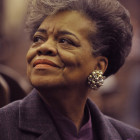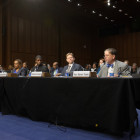
The Many Examples of the Power of Innocence Projects
|
Four women stood at the front of a room, speaking before the small crowd with strong voices even though each had gone through a harrowing and emotional experience. The women – Joyce Ann Brown, Audrey Edmunds, Tabitha Pollock and Gloria Goodwin-Killian – had all been wrongfully convicted and imprisoned for crimes they did not commit. In total, they spent 45 years incarcerated, knowing all the while they were innocent and clinging to some hope that this fact would come to light. Now free, thanks in no small part to innocence projects around the nation, their testimonies before the crowd headlined the commencement of the Women’s Project at the Northwestern University law school’s Center on Wrongful Convictions this month. “In the Center’s 13 year history, we’ve represented four women, all of whom were accused and wrongfully convicted of the murders of their children,” said Karen Daniel, a co-director of the Women’s Project and a professor at Northwestern University.

